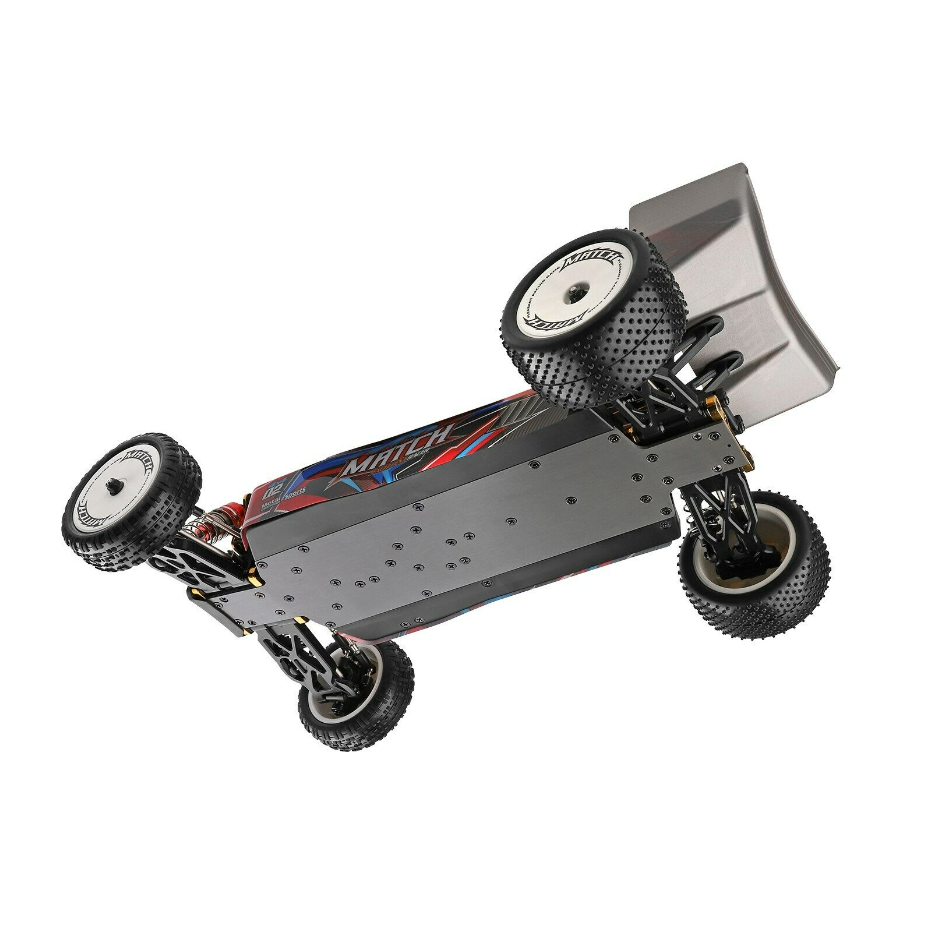
Can Gas-Powered RC Cars Beat Electric?
Share
Can Gas-Powered RC Cars Beat Electric? A Close Look at the Ongoing Debate
Introduction
The debate between gas-powered and electric RC cars has been ongoing for quite some time. Enthusiasts from both sides passionately argue in favor of their chosen propulsion method. Gas-powered RC cars have long been the standard, offering power and realism. However, with advancements in electric technology, electric RC cars have gained popularity for their eco-friendliness and ease of use. In this article, we'll delve into the pros and cons of each type to determine if gas cars can truly beat electric RC cars.
Gas-Powered RC Cars: Power and Realism
Gas-powered RC cars are known for their raw power and realism. These cars typically use nitro fuel, a mix of methanol, nitromethane, and oil, to power a combustion engine. The roar of the engine and the scent of fuel add to the authentic experience, making gas-powered RC cars appealing to many hobbyists.

Pros of Gas-Powered RC Cars:
- Power: Gas engines usually provide higher torque and top speeds compared to their electric counterparts.
- Realism: The sound, smell, and internal combustion engine mimic the feel of real cars, enhancing the hobby experience.
- Longer runtimes: Gas cars generally have longer runtimes than electric cars, as refueling is quicker than recharging.
Cons of Gas-Powered RC Cars:
- Maintenance: Gas engines require regular maintenance, including tuning and cleaning, which can be time-consuming.
- Fuel and exhaust: Nitro fuel emits exhaust fumes, making them less environmentally friendly and potentially harmful if not used in well-ventilated areas.
- Higher cost: Gas-powered RC cars are often more expensive due to the cost of the engine, fuel, and maintenance.
Electric RC Cars: Efficiency and Clean Performance
Electric RC cars have seen a surge in popularity due to advancements in battery and motor technology. These cars use rechargeable batteries to power electric motors, eliminating the need for combustion engines and fuel.

Pros of Electric RC Cars:
- Clean performance: Electric cars produce no emissions or exhaust fumes, making them environmentally friendly and suitable for indoor use.
- Lower maintenance: Electric motors are relatively low-maintenance, requiring less tuning and cleaning than gas engines.
- Instant torque: Electric motors deliver instant torque, providing responsive acceleration and smoother control.
- Quieter operation: Electric cars operate quietly, allowing for a more peaceful and neighbor-friendly hobby experience.
Cons of Electric RC Cars:
- Limited runtime: Electric cars have shorter runtimes due to battery limitations, requiring frequent recharging during extended play sessions.
- Initial cost: High-quality electric RC cars and batteries can be expensive upfront, though they may save money in the long run due to lower maintenance costs.
Conclusion: The Verdict
The question of whether gas-powered RC cars can beat electric ones ultimately depends on individual preferences and priorities. Gas-powered cars offer raw power and a realistic experience but come with higher maintenance and environmental considerations. On the other hand, electric cars provide cleaner performance, ease of use, and lower maintenance, though with some sacrifices in power and runtime.
For those seeking raw power and a true-to-life experience, gas-powered RC cars remain a compelling choice. However, as electric technology continues to evolve, electric RC cars are gaining ground with their efficiency and eco-friendliness.
In the end, the "winner" depends on what enthusiasts value most: the adrenaline rush of a roaring gas engine or the convenience and clean operation of an electric motor. The debate rages on, and as technology progresses, both gas and electric RC cars will continue to offer exciting options for remote-controlled car enthusiasts.